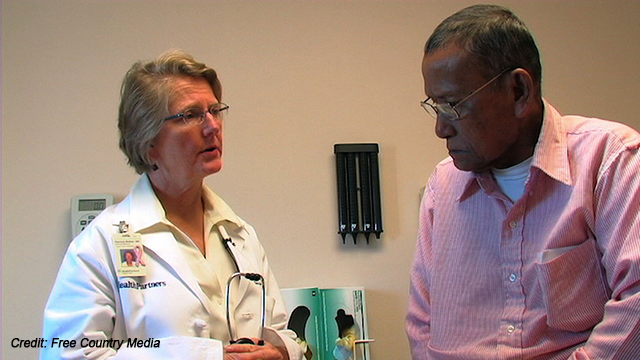 With May being Skin Cancer Awareness Month and in tandem with our event Wednesday co-hosted with the Congressional Families Cancer Prevention Program, The Hazards and Allure of Indoor Tanning Beds on College Campuses we are running a series on skin cancer. Be sure to check back daily for posts on skin cancer including how you prevent and detect it. Enjoy!
With May being Skin Cancer Awareness Month and in tandem with our event Wednesday co-hosted with the Congressional Families Cancer Prevention Program, The Hazards and Allure of Indoor Tanning Beds on College Campuses we are running a series on skin cancer. Be sure to check back daily for posts on skin cancer including how you prevent and detect it. Enjoy!
There is mounting scientific research that shows an association between indoor tanning bed use and the risk of developing melanoma and non-melanoma skin cancers. I believe that significant public health efforts to reduce indoor tanning could greatly reduce the burden of skin cancer. I have spent the past several years developing a research program related to better understanding the decision to use indoor tanning beds among young women, particularly among those who are the most frequent tanners. My current research has led me to greatly appreciate the powerful role that our culture and peers have on tanning as well as the nuanced understanding that tanners share about the various social benefits of being a tanner. Tanners often relay stories about how a friend or a family member either poked fun of them for being pale or gave them a compliment on their tan. Women in college don’t want to miss out on time with their friends when everyone is going on a group trip to the tanning salon. Tanners are quick to point out examples of female celebrities with “perfect” tans. Above all else, some tanners just want to avoid being “the pale girl” in their group and the unwanted attention, real or imagined, that comes with that designation. I believe my and others’ research is beginning to show that such experiences do more than just lead young women to think that tanning as something that would make them look better. For frequent tanners, these experiences seem to have a deeper impact and lead to the belief that being tan is a fundamental part of what it means to be an attractive woman. Women who buy-in to the importance of tanning are likely to feel dissatisfied with their appearance and self-conscious around others when they are not as tan as they would like to be.
I believe my work is beginning to show that those of us who are interested in changing tanning behavior need to consider tanners’ perceptions of the social and personal implications of changing their tanning behavior. Tanners are likely to be reluctant to stop if they feel like a critical part of their self-presentation or social connections include tanning. I have been developing and testing prevention efforts with tanners that attempt to address these aspects of tanning by encouraging women to consider why they consider tanning to be important to them and presenting them with alternative perspectives regarding the importance of tanning. This preliminary work has shown some encouraging results. I would encourage anyone interested in the health issue of indoor tanning to consider the perspective of an indoor tanner and the possible role of the sociocultural and peer context in promoting and sustaining their tanning behavior.
Jerod Stapleton, PhD is a Resident Member of the Rutgers Cancer Institute of New Jersey. He is also an Assistant Professor of Medicine in the Division of Medical Oncology, Section of Population Science at Rutgers’ Robert Wood Johnson Medical School.
SOURCE: Disruptive Women in Health Care – Read entire story here.





